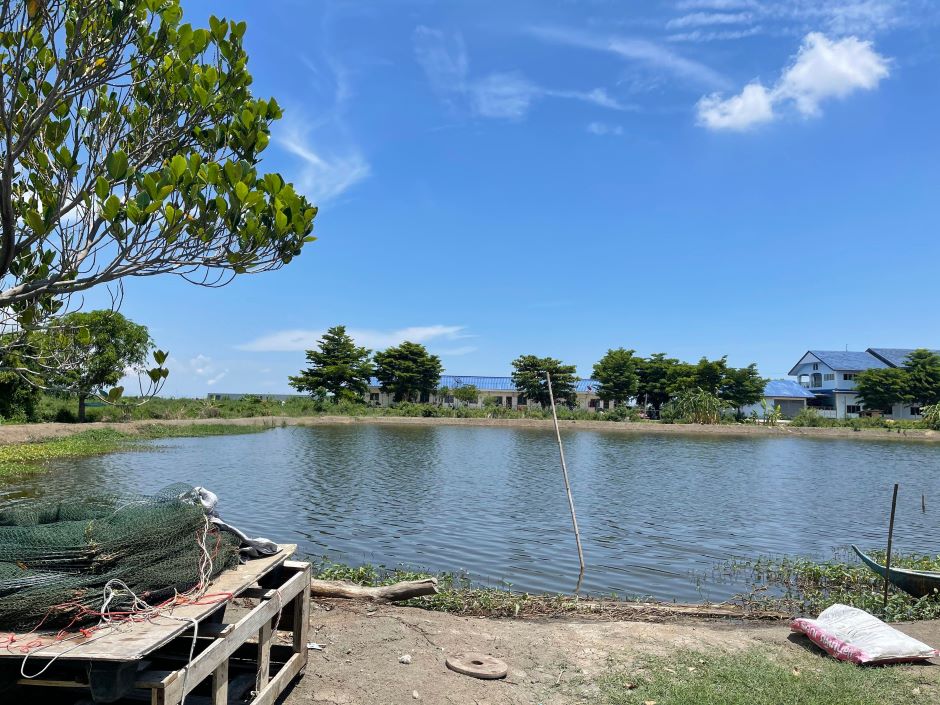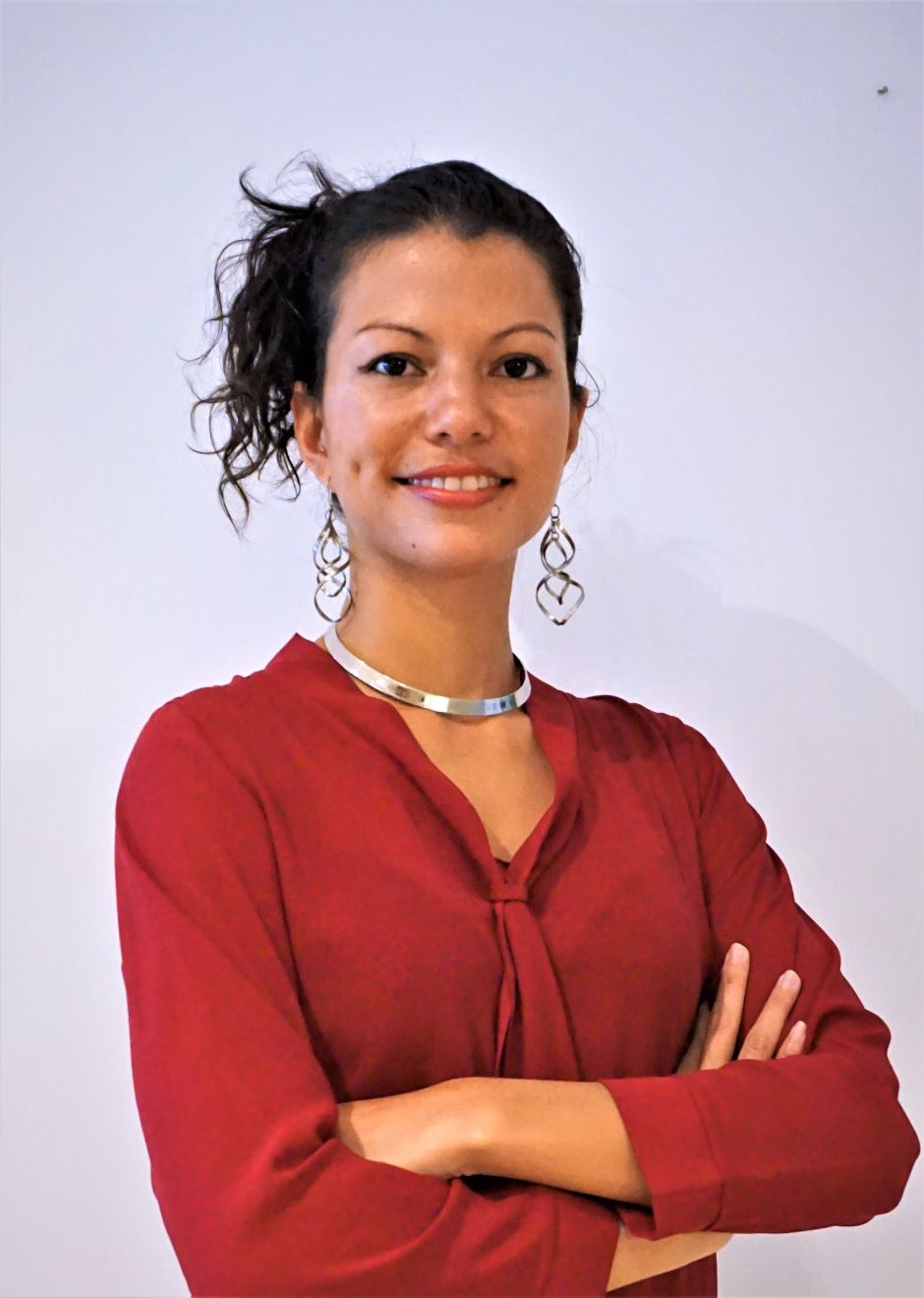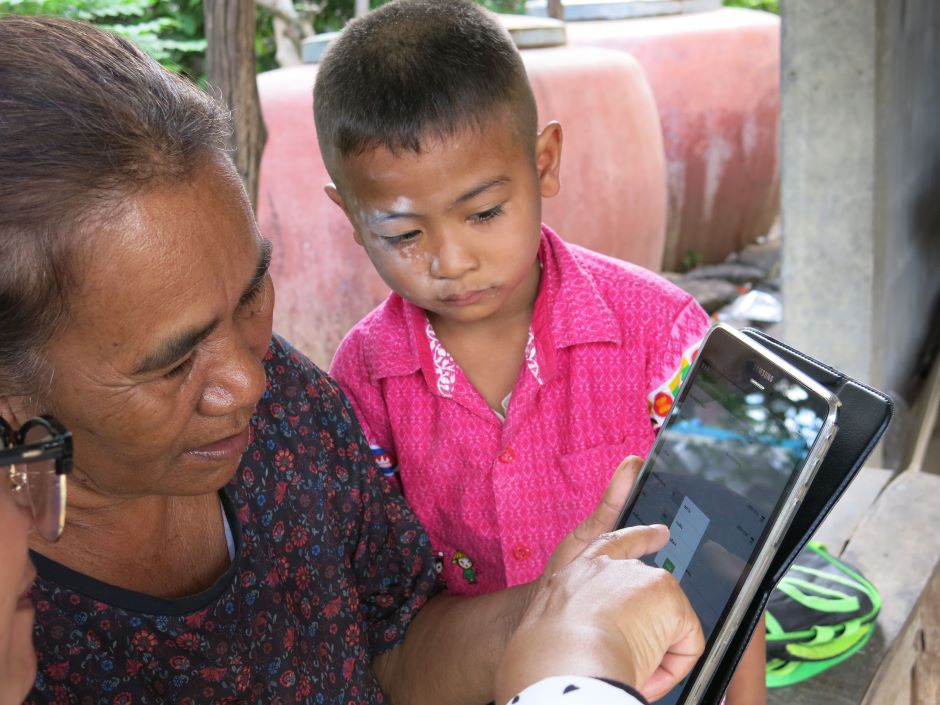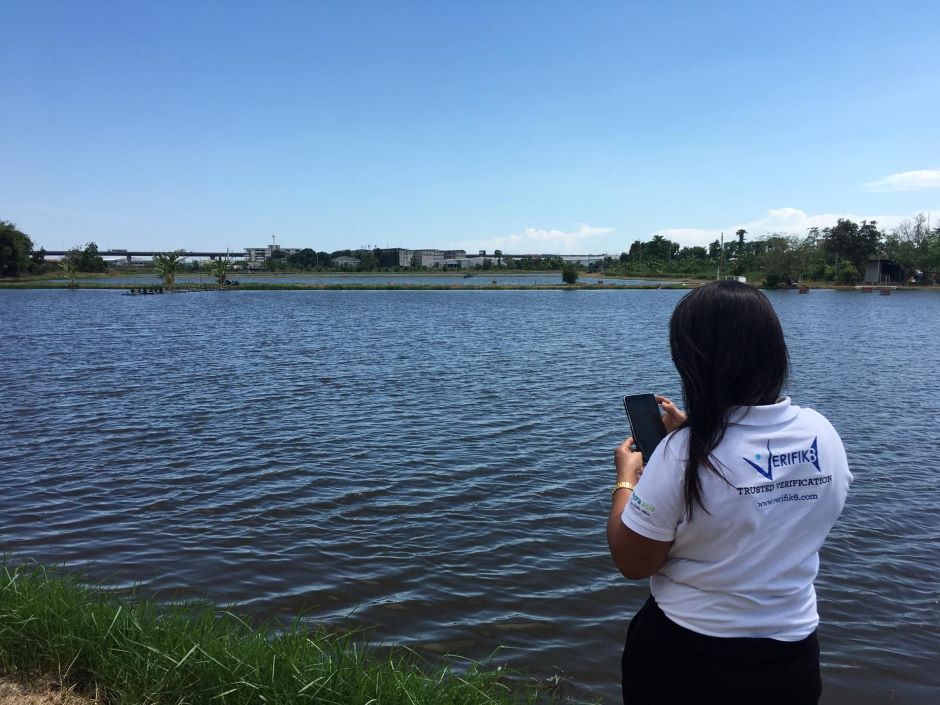Better Practices On Shrimp Farms
With Aquaculture Innovator Juliette Alemany
 Field trip visiting shrimp farm (Credit: Thanyasiri Deeying)
Field trip visiting shrimp farm (Credit: Thanyasiri Deeying)Juliette Alemany is a country manager and data scientist in Bangkok at Fairagora Asia. She is part of the development of VerifiK8, an integrated data analytics platform for shrimp farmers.

(Credit: Juliette Alemany)
Can you tell us about your career at Fairagora Asia?
My background is agronomy engineering and data science applied to fisheries. I joined Fairagora Asia at the end of 2018 as a data scientist to improve the existing VerifiK8 web and mobile applications. Then I became responsible for managing the new IT development of these applications and working on networking and stakeholder engagement. Today, I am the country manager, handling general office management, project management and operational tasks. We work with private companies and NGOs to improve their supply chains’ sustainability practices. We conduct a baseline assessment using initial available data and additional data that we collect through surveys. We then implement a long-term strategy to improve the social and environmental metrics. What I particularly enjoy at Fairagora is that, not only do I work on the management side, but I also get to use my coding skills and work with farmers in the field.
What does VerifiK8 do?
It’s a data collection and data analysis tool for agriculture and aquaculture. In the case of shrimp farming, users are provided with their personal credentials to access a dashboard that summarizes information on what is going on across the shrimp production chain. VerifiK8 is open to everyone from shrimp farmers to staff at processing plants. A farm owner can upload documents on land use or social policy, record production details, or answer questions and find out where they’re in terms of social and environmental sustainability. A mobile application is also linked to a web application and a more extensive database. VerifiK8 provides valuable analysis on social and environmental compliance and supports farm productivity. Its web application is fully aligned with the Aquaculture Stewardship Council (ASC) standard for shrimp and can be used by farmers to assess their readiness before an audit. It has a checklist of all ASC requirements translated into Thai. The mobile application also helps farmers gain advice on what to do to ensure that conditions on their farm are at their best prior to assessment.

Training of farmers on the social features of VerifiK8 mobile application. (Credit: Juliette Alemany)
What are some advantages of VerifiK8 When Applied to Shrimp Farming?
It helps international brands and retailers because it provides an overview of supply chains’ level of compliance and assesses main risk areas. It is also ideal for processing plants and farms because it helps them improve their social and environmental sustainability. VerifiK8 can also teach shrimp farmers how to keep records of their data and understand what improvements they could make on their farms. Small farms, in particular, don’t tend to record data often enough, so we are taking steps to help mitigate this issue. We have organized workshops in the past, and they have helped encourage farmers to be more active data collectors and loggers.
What are some of the shrimp farming industry’s biggest challenges, and how does VerifiK8 work to address them?
In order to export shrimp internationally, selling certified products is becoming increasingly important. Understanding all the requirements to comply with a standard is not easy for smallholder farmers. VerifiK8 plays a considerable role in translating these requirements into a step-by-step approach for smaller farms. Child labor, human trafficking and forced labor are also huge challenges in Thailand that could negatively impact shrimp farming. VerifiK8 works to prevent these issues through early risk assessments and adequate training.
What are you most proud of in your work to date?
I am very proud of supervising VerifiK8’s development, seeing its end results, and working to improve the Fairagora Asia team by recruiting the right people and mentoring employees. We have made tremendous progress in our level of expertise and knowledge of farmers’ needs. I have improved my own leadership skills, and I am proud to see each team member reach new personal development goals.

Field trip visiting shrimp farm (Credit: Thanyasiri Deeying)
How is technology important to aquaculture’s future, and how is it likely to develop?
It’s becoming increasingly important. One pressing matter in which technology will play a role in analyzing large amounts of data to better predict diseases, assess compliance, and improve productivity. Technology can also play a key role in social topics. For example, when workers wish to make a complaint and stay anonymous at the same time, access to technology can enable them to do so.
What developments will we witness in the coming years that you believe will help to improve shrimp farming in Thailand?
One is social compliance and supporting migrant workers–we want to offer solutions to tackle social issues at the worker level. Another is climate change. We are currently building a carbon footprint calculator for sugarcane farms and intend to develop such a calculator for aquaculture as well.


0 comments